OVERVIEW
Preparation is key to avoid a lot of the stress and make sure that you are putting your best foot forward and making the most of every opportunity for each application you send in.
It is a opportunity to showcase your skills, experience, and personality to the interviewer. Proper preparation can help you to present yourself in the best possible light, making a positive impression on the interviewer. It can also help to reduce stress and anxiety, which in turn can increase your confidence during the interview.
By investing time and effort into preparation, you can demonstrate your commitment and interest in the position, setting yourself apart from other candidates. Ultimately, the effort you put into preparation can make all the difference in securing the job you want and catch some of the trickier questions that they might have.
PREPARATION QUICK TIPS
Let’s have a look at how we can actually prepare yourself for the interview and give yourself the best chance at joining their team. First these are the quick tips up here, and then let’s dive into them a little bit more.
- RESEARCH THE COMPANY
Find out what games the company makes, what their core values are, if they have been in the news recently, etc... - UNDERSTAND THE INDUSTRY
Know about industry trends, understand common workflows but also who owns the company and what drives their recent changes - PREPARE QUESTIONS
Think about things that are important to you and prepare a list of questions you want to ask during the interview - TAKE NOTES
When doing an in person interview make sure you get a notepad and take notes if needed - STRESS IS NORMAL
The people on the other end can usually sense this and will never hold it against you. - TRUST YOURSELF
You're here for a reason, you've impressed the people at the company! - TIMEZONE AWARENESS
Be aware of differences in timezones and make sure you check you have the right time. - DRESS UP A BIT
It doesn't have to be elaborate, but just make sure you look presentable, keep the jogging pants for when you get hired. - BODY LANGUAGE
Be aware of the signs your sending with your body. - STAY AUTHENTHIC
Most importantly, stay true to yourself and just be yourself, that's the person they want to see and hire. - FOLLOW UP
If the reply takes a little too long, make sure to follow up with them
Research the Company
First step is to understand the company you're applying to yourself, knowing what games they make, what values they align themself with, what people say about it to have a better idea of what it could be like working for them.
So let's take it step by step and go through what you need to know based on importance
CURRENT GAMES
Might be an obvious one, but knowing the games they are working on can give you and insight on what you can expect from working on them. It also helps to know what engine they use to work on the game as well, sometimes it's revealed as they do any sort of public reveal of the game, if not you can always ask in the interview.
COMPANY VALUES
And most importantly if they stick to them, I won't name any names but there are enough occasions out there where a company states their values in a very public way but then don't deliver on those values internally.
WHAT PEOPLE SAY
Glass door is the place to go and get a good glimpse into the company from the outside. It contains a lot of individual reviews from people that have worked or did work at the company.
However, you never really know where these reviews come from and what their motivations are, so if you know anyone who has worked there or works there currently, it might be good to ask them directly if you know them well enough.
GAMES HISTORY
Especially their most current games, since they might come up for discussion during the talk.
But if you haven't played them, no issue there!
COMPANY HISTORY
This is the bottom of the list and really something that you might not even be asked about, so keeping it to their more recent games that maybe you played is all you need to know!
Understand the Industry
While not necessarily needed for the interview itself, I feel that being aware of the industry, it's trends, challenges and movements can make you a more valuable member of your team and help your personal career too.
Depending on how in depth you want to go and how personally you value this it can be beneficial to know who owns the company, since some of them have a very different opinion on how to treat the companies they own.
Apart from that knowing where the industry is going and what workflows or practices are becoming more and more in use.
Prepare Questions
This can be really tricky at first, but keep in mind that there's no wrong or bad questions, this is your moment to figure out if tyhe company works for you.
Let me give you a couple of examples of what these questions could be.
- What are the future goals for the studio?
- What is the company stance on overtime?
- What are the foundations of the studio culture?
- What makes this studio unique versus other studios?
but more questions can be found here: INTERVIEW QUESTIONS
TAKE NOTES
Always bring a notepad and a pen for taking notes, some interviews might take a really long time and you will be happy that you've made some notes at the beginning to follow up on later.
Another good backup is to also bring your resume to the interview as well, even though I would say that in 90% of the cases you won't need this (Everything is online now) it's nice to have it on hand just in case.
Plus it also makes you look prepared and professional too.
Stress is normal
It's completely normal to feel nervous or stressed when going into an interview, but there's honestly nothing to stress about, the people on the other side have been in that exact position and know how it is to feel during the interview.
Sometimes it can also be that the people on the other side are nervous/excited to talk to you too and they will definitely keep that in mind.
Trust yourself and your skills
You’ve been invited to an interview, which is already a form of validation by itself. So use this information to make yourself a little bit more comfortable and allow yourself to trust your skills and be proud of the work you’ve already achieved up until this point.
So use that confidence during your first interview, and get ready to break into the industry.
Plan your time
Especially with an international industry like the one we work in we have to be wary of timezones, so double and triple check you’ve got the time right. There are great time convertors online you can look at and if you still worry about having the wrong time you can also check with someone else or send another email to the studio.
One of the things I use everything is just copy what time they give you, paste that into google and then add "to local time" this will give you a direct time conversion.
When it comes to doing to interview at a location, plan your route and transportation to ensure you arrive on time. For virtual interviews, join the call a few minutes early.
If something happened and you can’t make it, then as soon as you know you aren’t going to make it, let the studio know. These things happen, and it’s better to let the studio know rather than not letting them know at all.
Dress up for the occasion
There is no dress code for the industry itself, people come into work with pretty varied outfits. However, for an interview you want to give a good and professional impression. This means leaving your chill clothes at home and dressing up for the occasion to make a good first impression, especially since you only have one of those.
The appropriate clothing is something that is decent, casual clothing will do just fine!
Body language
Be mindful of your body language, for everyone this is going to be different but you want to make it seem like you are comfortable (even though you might not be). So start out with a handshake to great people and maintain an open posture and share eye contact where possible.
Stay authentic
The last but probably the most important rule, don’t pretend to be someone that you are not or think might be “unprofessional” for whatever reason. The games industry is full of people in love with nerdy things, to let your inner nerd out and get technical if you want.
Follow Up
After the interview, it can always help to send out a little thank you as a follow up on the day after. It's not a common thing, but it can be a nice little way to stand out and leave a mark on the people you spoke too.
Remember, interview preparation is an ongoing process. Each interview is a chance to refine your skills and learn from the experience. Adapt these tips to your unique situation and practice until you feel confident in your abilities. Good luck!






















